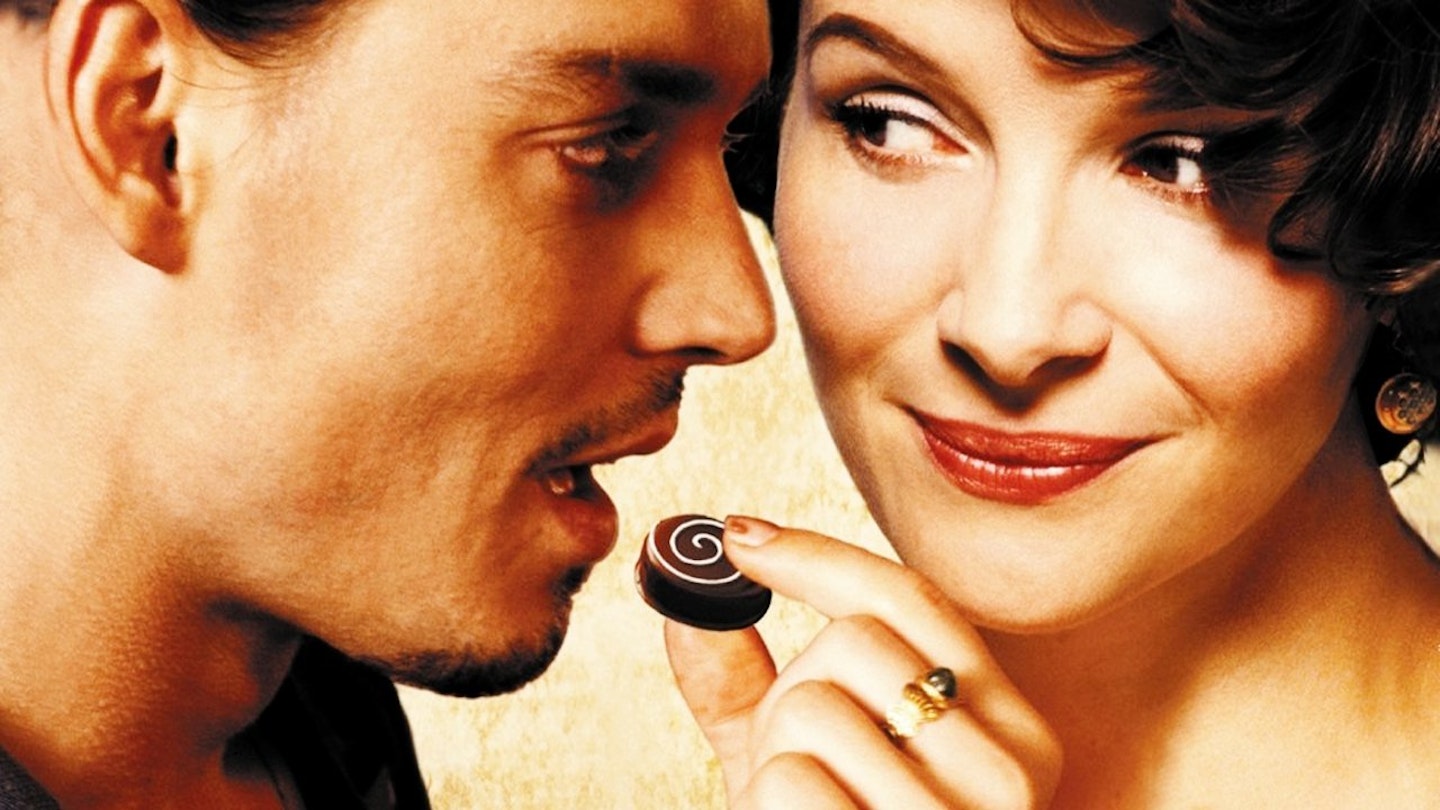The daughter of an adventurous but conformist French pharmacist and a wandering Mayan shamaness, the heroine of Joanne Harris' novel Chocolat represents two literary traditions mixed together - the tale of French provincial manners (cf: Clochmerle) and South American magical realism (cf: Like Water For Chocolate). Lasse Hallstrom has recently hit his international stride by making films of slightly off-beat literary efforts: his last was John Irving's The Cider House Rules, and Chocolat was followed by E. Annie Proulx's The Shipping News. Here, he brings a delicate touch to a blend of comedy, soap, romance and magic that feels at first like a souffle, but turns out to be more substantial.
The broad strokes are familiar, and might even come from A Fistful of Dollars: a mysterious stranger arrives in town and inspires the downtrodden to rise against the local bosses, who resort to duplicity and - in the end - violence to hang on to power. Vianne's chocolate has a lot of work to do: Judi Dench is estranged from her uptight daughter (Carrie-Anne Moss); kleptomaniac Olin is at risk of being battered by her drunkard husband (Peter Stormare); lovestruck pensioner John Wood is still unsure about asking out an old lady (Leslie Caron); and there's the sexual inactivity of peasant Ron Cook to tackle.
As all these stories turn for the better in wry, charming, understated asides, arch-puritan Molina bullies the Presley-loving priest (Hugh O'Connor) into preaching ever more explicit anti-chocolate sermons, even as he is tempted to more drastic measures.
The comedy, expertly played, segues into romance as Johnny Depp turns up with an Irish accent and a guitar to give the independent Binoche a little love interest, but the heart of the film is the criticism of the heroine voiced by her daughter (Victoire Thivisol), who isn't exactly happy with the life mission of wandering chocolate benevolence that has been foisted on her. It's an unusual insight into a familiar story, and complicates the film's path to a satisfying, if not entirely unexpected, ending.
